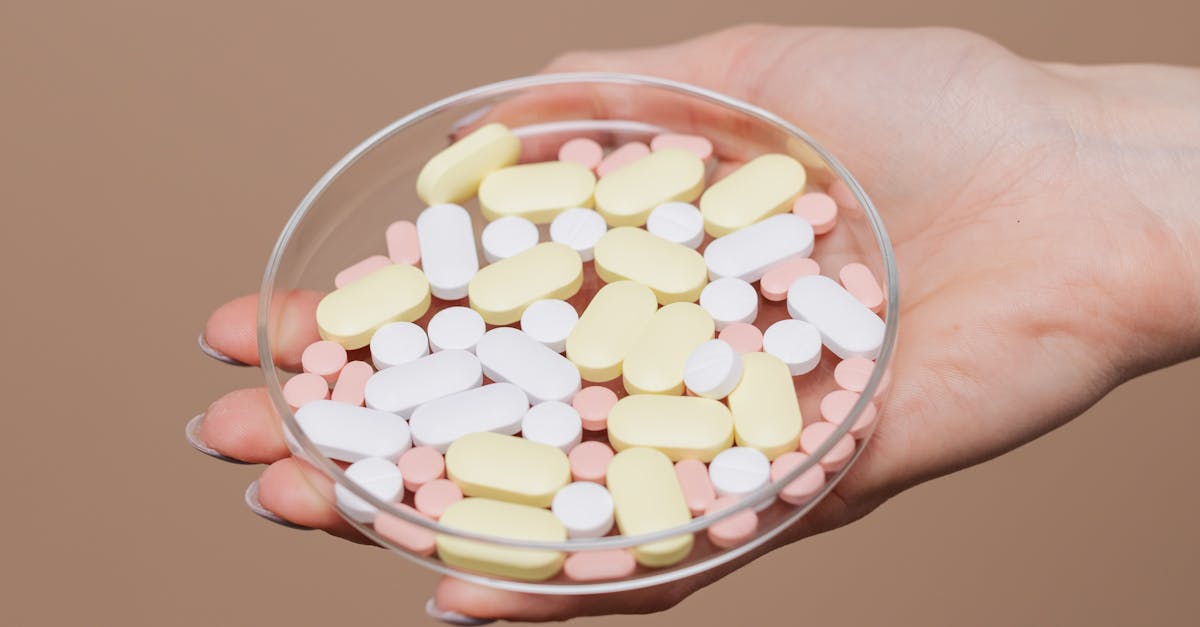
The Role of Family in Outpatient Drug Recovery
Family plays a crucial role in supporting individuals undergoing outpatient treatment for drug addiction. The involvement of family members can significantly impact the success of the recovery process. By engaging with the patient during outpatient treatment, family members provide a network of support and encouragement necessary for maintaining sobriety. Their emotional support and understanding help create a conducive environment for the individual to focus on their recovery journey. Family involvement in outpatient treatment can strengthen the bond between the patient and their loved ones, fostering a sense of accountability and motivation to stay committed to the treatment plan.
Furthermore, family members participate in educational sessions and therapy programs as part of the outpatient treatment process. These sessions aim to enhance communication skills, improve understanding of addiction-related behaviors, and establish healthy boundaries within the family unit. By actively engaging in family therapy sessions, loved ones can address underlying issues that may have contributed to the individual's substance abuse, fostering a more supportive and nurturing home environment conducive to long-term recovery. The collaboration between the individual in outpatient treatment and their family members can create a strong support system that plays an integral role in achieving and sustaining sobriety.
Family Therapy Sessions in Outpatient Treatment
Family therapy sessions play a crucial role in outpatient treatment programs for individuals struggling with drug addiction. These sessions provide a safe space for families to address underlying issues, improve communication, and rebuild relationships strained by substance abuse. By involving family members in therapy, patients can receive crucial support and gain insights into the dynamics that may have contributed to their addiction.
In outpatient treatment, family therapy sessions aim to foster understanding and unity among family members, equipping them with the necessary tools to navigate the challenges of recovery together. Through open dialogue and guided interventions, families can work towards creating a supportive environment conducive to the patient's healing journey. Ultimately, the collaborative efforts in family therapy sessions can enhance the effectiveness of outpatient treatment and promote long-term recovery outcomes.
Managing Cravings and Triggers in Outpatient Drug Programs
Managing cravings and triggers is a crucial aspect of outpatient drug treatment programs. Patients are taught various coping strategies to deal with these difficult moments in a healthy and constructive manner. By identifying triggers and learning how to effectively manage cravings, individuals in outpatient treatment can develop resilience to avoid relapse and maintain their sobriety.
Outpatient treatment programs often incorporate cognitive-behavioral techniques to help individuals recognize and modify negative thought patterns that contribute to cravings and trigger responses. Through therapy sessions and skill-building exercises, patients can gain the tools necessary to navigate challenging situations without resorting to substance use. The ultimate goal of managing cravings and triggers in outpatient drug programs is to empower individuals to take control of their recovery journey and lead fulfilling, substance-free lives.
Coping Strategies Taught in Outpatient Therapy
Coping strategies are essential tools taught in outpatient therapy to help individuals effectively manage their cravings and triggers for drug use. One prevalent coping strategy used in outpatient treatment is the practice of mindfulness. By focusing on the present moment and learning to acknowledge and accept one's thoughts and emotions without judgment, individuals in outpatient programs can build resilience against urges to relapse. Additionally, behavioral coping strategies such as cognitive-behavioral techniques are commonly employed in outpatient therapy to modify negative thought patterns and behaviors associated with drug use.
In outpatient treatment, individuals are also taught the importance of stress management techniques to cope with the challenges of recovery. Techniques such as deep breathing exercises, progressive muscle relaxation, and guided imagery are commonly incorporated into therapy sessions to help individuals reduce stress and prevent the escalation of negative emotions that might trigger a relapse. By providing individuals with a toolkit of coping strategies, outpatient drug treatment programs empower participants to navigate the ups and downs of recovery with greater confidence and resilience.
Success Rates of Outpatient Drug Treatment
Outpatient drug treatment programs have shown promising success rates in aiding individuals to overcome substance use disorders. The flexibility and accessibility of outpatient treatment allow individuals to receive the necessary care while maintaining their daily routines. Research indicates that outpatient treatment is effective in helping individuals achieve and sustain recovery from drug addiction. The structured therapy sessions, support groups, and counseling offered in outpatient programs play a pivotal role in assisting individuals to address their substance abuse issues and develop healthy coping mechanisms.
Moreover, studies have highlighted the positive outcomes of outpatient treatment in supporting individuals to achieve long-term recovery goals. The comprehensive approach adopted in outpatient programs equips individuals with the necessary tools and strategies to manage cravings, avoid triggers, and maintain sobriety. Through continual support and guidance, individuals participating in outpatient treatment are provided with the resources needed to navigate the challenges of substance abuse and build a solid foundation for a drug-free life.
LongTerm Recovery Rates for Outpatient Programs
Long-term recovery rates for outpatient drug treatment programs can vary depending on the individual and the specific program they are enrolled in. Studies have shown that individuals who fully commit to their outpatient treatment plan and actively engage in therapy sessions tend to have higher success rates in maintaining sobriety over the long term. Outpatient treatment provides support and resources that can help individuals develop coping skills, address underlying issues, and sustain a sober lifestyle beyond the program's duration.
One key factor that influences long-term recovery rates in outpatient treatment is the individual's willingness to continue engaging in therapy, practicing coping strategies, and seeking support from their treatment team and loved ones. By actively participating in aftercare programs, attending support group meetings, and staying connected with their therapists, individuals can increase their chances of maintaining sobriety and avoiding relapse. Outpatient treatment offers a flexible and structured approach to recovery, allowing individuals to gradually transition back into their daily lives while receiving ongoing support and guidance to help them stay on track towards long-term sobriety.
FAQS
What is an outpatient drug program?
An outpatient drug program is a form of treatment where individuals attend therapy sessions, counseling, and other interventions on a part-time basis while living at home or in a sober living environment.
How is an outpatient drug program different from inpatient treatment?
In an outpatient drug program, individuals do not reside at a treatment facility and are free to go about their daily lives while attending therapy sessions. In contrast, inpatient treatment requires individuals to live at a treatment facility for a designated period of time.
What types of therapies are typically offered in outpatient drug programs?
Outpatient drug programs may offer individual therapy, group therapy, family therapy, cognitive-behavioral therapy, and other evidence-based treatments to address the unique needs of each individual in recovery.
Who is eligible for an outpatient drug program?
Individuals who do not require 24-hour supervision or medical detoxification, have a supportive home environment, and are motivated to make positive changes in their lives may be eligible for an outpatient drug program.
How long do outpatient drug programs typically last?
The duration of an outpatient drug program can vary depending on the individual's progress and needs. Some programs may last a few weeks, while others may extend to several months to provide ongoing support in the recovery process.


